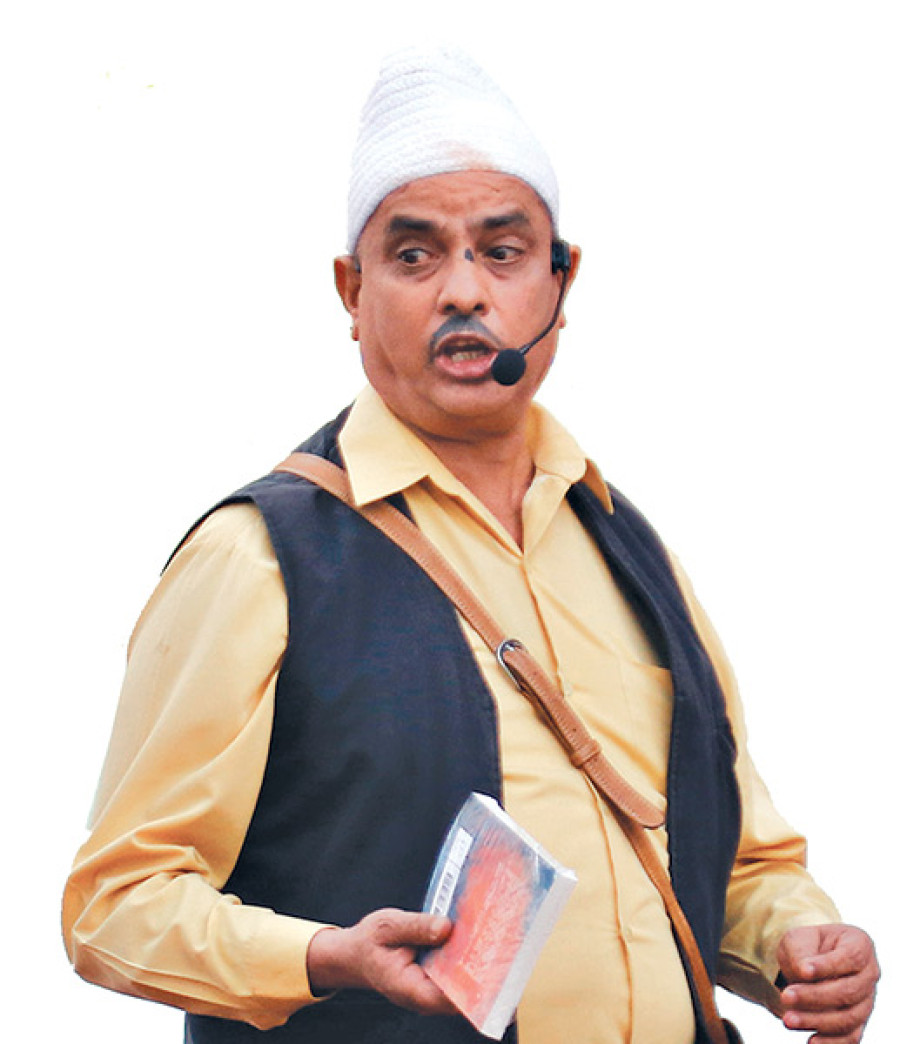Entertainment
Beauty of humour
A household name in the country, Hari Bansha Acharya is a popular comedian, singer and philanthropist.
A household name in the country, Hari Bansha Acharya is a popular comedian, singer and philanthropist. After garnering rave reviews for his first book—Cheena Harayeko Manchhe, Acharya recently released his second book, Hari bahadur. Based on the antagonist of the popular TV series Madan bahadur Hari bahadur, in his new book Acharya explores what goes into making a dark character such as Hari bahadur by tracing his life from an early childhood. In this conversation with Post’s Samikshya Bhattarai, Acharya talks about the book, his writing process and the importance of satire and sense of humour. Excerpts:
What is Hari Bahadur, the novel, about?
Hari Bahadur is a novel based on a character of the same name from the popular series—Madan bahadur Hari bahadur. The novel is a back story and an insight into what made the character who he is. Hence, the story that the novel tells is much different from what people have known of the character so far. What makes this book stand out is its lead, Hari bahadur, who is everything that the lead characters of most books aren’t. He is neither heroic nor brave, he’s neither virtuous nor inspiring;
in fact, he is everything in contrary. In the book, I have tried to portray the misadventures of this dim-witted character who’s a trickster that falls victim to his own deeds. While the story taps into the grim period of Maoist insurgency in Nepal, humour remains at the core of this book giving it a sense of dark comedy.
Your literary journey started with an autobiography, and now you have published a novel. What differences do the two genres have?
To write an autobiography you don’t need to create a story, you just need to recall what has already happened in your life. Biography is all about how the author presents his story and plays with the words to make real life events seem exciting. Writing a novel is much different: one needs to be creative, one needs to be imaginative. Writing a novel is much rigorous compared to just penning down what you have already experienced, it about creating whole new experiences.
Acting and writing are both forms of self-expression. Why did you switch from one form to another?
Even though I have not been recognised as a writer, I have been writing for a long time now. I have written so many acts before I even went on to the stage. However, it was not necessarily a switch. Writing a book was never in the plan. But when I lost my first wife, I was deeply affected by the loss. To cope with the heartbreak and inner turmoil, I started writing. When my friends came across the drafts, they suggested I publish a book out of them. I started recollecting the events in my life and eventually pulled together a biography. Cheena Harayeko Manchhe was received with an overwhelming response from the readers who gradually pushed me to write my next book. I realised writing could be a good way to connect to the audience and hence kept expressing through words.
You are one of the most popular satirists in the country. How important are satire and humour?
Satire and humour appeal to humans of all age. Comedy is a method through which one can put light into the shortcomings of a society, flaws of a human being, or a severity of a situation through little or no offence. The beauty of satire lies in the fact that it makes relaying even the harshest of messages easy, as people can easily digest the truth when presented to them comically. Satire and humour plays an important role in appealing and entertaining the audience without fail.
How important is reading for an artist like you?
Reading is an important habit whether you are an artist or not. Reading makes you culturally rich while teaching you a lot of lessons about important things in life and society. For an artist, reading plays an important role as we rely on imitation to do our acts, and much of the knowledge is garnered through reading. Reading is also important when you are an artist because the recognition comes with a responsibility; one needs to be well-informed and well-learned to do justice to so many people in the audience that look up to you.




 22.12°C Kathmandu
22.12°C Kathmandu









